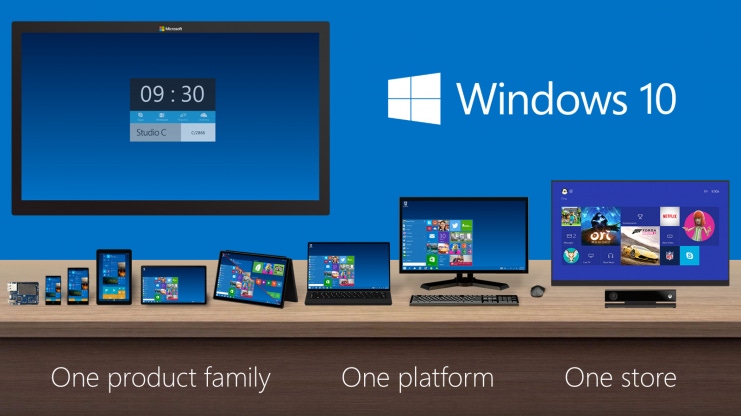Microsoft is set to unveil its new mobile strategy tomorrow, aiming to better establish itself in the mobile computing market. The software giant is about to release Windows 10, the operating system designed to work across all hardware platforms, which Microsoft reckons will make life easier to consumers and app developers alike.
January 20, 2015

Microsoft is set to unveil its new mobile strategy tomorrow, according to a source at The Information, aiming to better establish itself in the mobile computing market. The software giant is set to release Windows 10, the operating system designed to work across all hardware platforms, which Microsoft reckons will make life easier to consumers and app developers alike.
The idea is Windows 10 will allow an app to run smoothly and just as well on phones, tablets and PCs, rather than being optimised for one screen size, and that developers will only have to work from a single, unified code base. The aim of this is to boost developer interest in the mobile platform, something Microsoft is still struggling to do. At the time of announcing the OS, Microsoft said it will be ideal in “delivering the right experience on the right device at the right time,” as Terry Myerson, the firm’s OS Group EVP put it.
It has also been reported Microsoft is planning to launch some new hardware, including an integrated phone-laptop device perhaps targeted at enterprise customers, and a new single app store to replace the two it currently has (one of phones and another for PCs and tablets). The report also suggested there have even been talks whether Microsoft should allow Android apps on Windows devices.
It does look like Microsoft is trying to target the corporate sector with the inclusion of such features as Windows Store management capabilities for organisations using the Windows 10 apps. The company said in a blog post this will increase choice, flexibility and control for businesses.
This all seems to point towards a strategy where apps take centre-stage over the Windows mobile OS, which has failed to really challenge the dominance of iOS in the premium market and Android in the mid and lower segments.
With a universal platform for all devices, and moving towards a platform-agnostic model as indicated by the release of its Health platform, Microsoft can focus on pushing Mobile Office much more vigorously. As predicted by Telecoms.com previously, this renewed strategy is probably the best bet Microsoft can make in the mobile market. It is now increasingly difficult to gain revenues through a traditional model of selling phones as the market becomes ever more software and service driven.
About the Author(s)
You May Also Like







.png?width=300&auto=webp&quality=80&disable=upscale)

.png?width=300&auto=webp&quality=80&disable=upscale)
_1.jpg?width=300&auto=webp&quality=80&disable=upscale)



.png?width=800&auto=webp&quality=80&disable=upscale)